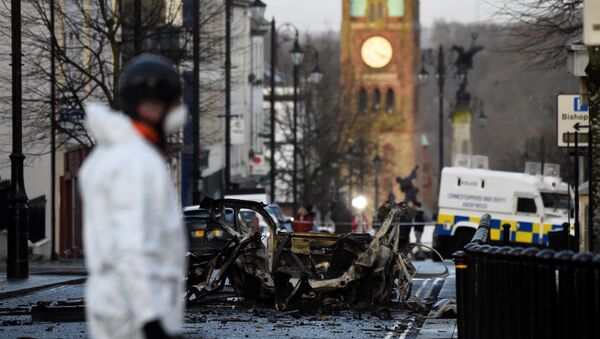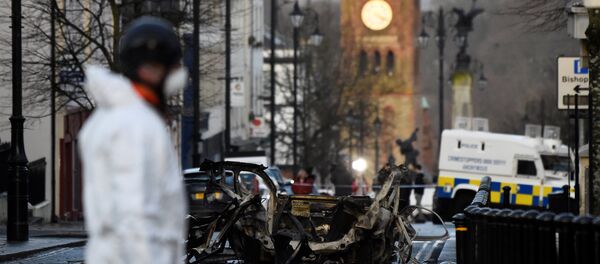Whilst no one was injured or killed in the January attack, the incident has raised terror threats across the region and spiked fears of materialising a hard border between the Republic of Ireland and Northern Ireland, authorities in Northern Ireland and the European Union have cautioned.
The group also denied that Brexit motivated it to plant the bomb, adding that the group's fight "goes on".
“We also caution those who collaborate with the British that they are to desist immediately as no more warnings will be given,” the statement continued.
Breaking: A group calling itself "the IRA" has admitted responsibility for the car bomb attack in Derry city centre. In a statement to the Derry Journal newspaper, the group also claimed that it would carry out further attacks
— Emma Vardy (@EmmaVardyTV) January 29, 2019"IRA" claim Londonderry court house bomb and state it has nothing to do with Brexit or a "hard border". (Most dissident groups supported Brexit & oppose the EU) Bombing probably connected to 1919 centenaries of First Dail & Soloheadbeg Ambush pic.twitter.com/QZIzHILO9s
— Kilsally (Alan Day) (@Kilsally) January 29, 2019
"All this talk of Brexit, hard borders, soft borders, has no bearing on our actions and the IRA won't be going anywhere," the statement read. "Our fight goes on."
READ MORE: Security Alert in Londonderry After Reports of Hijacked Van — N Ireland Police
The New IRA detonated a car bomb inside a pizza deliver van outside a Londonberry courthouse, prompting MI5, the UK's domestic security force to commission 700 spies to Belfast as a major security operation aimed at tackling the threat.
The period of the Troubles saw nearly 30 years of fighting between Catholic Republicans from the Republic of Ireland and Protestant Unionists from Northern Ireland prior to forming a ceasefire in 1994 and the Good Friday agreement in 1998, with the latest version of the IRA began as one of a cluster of groups opposed to the peace accord.



